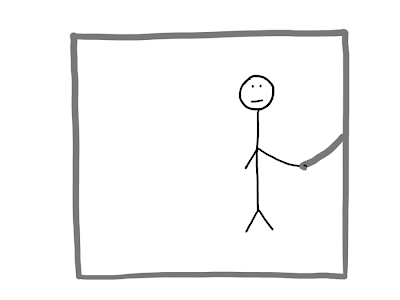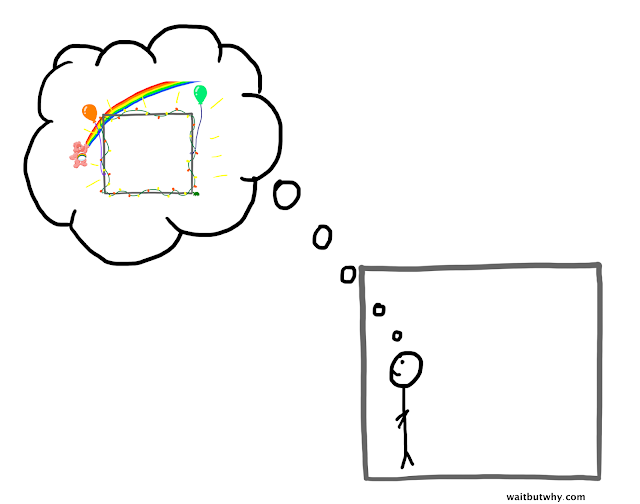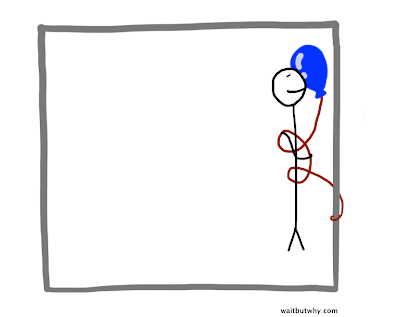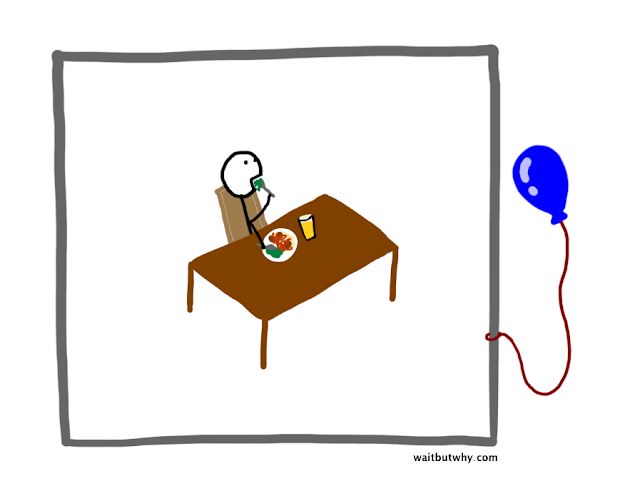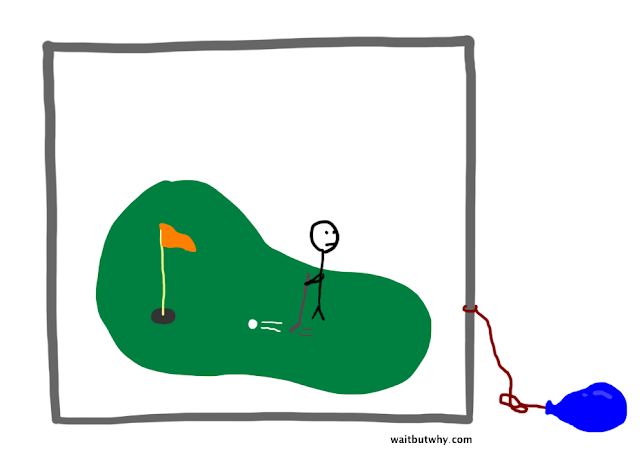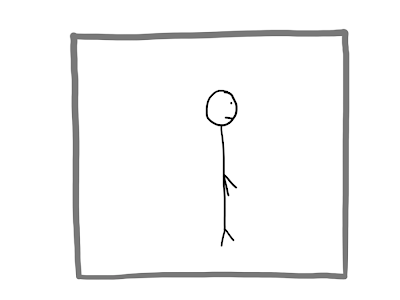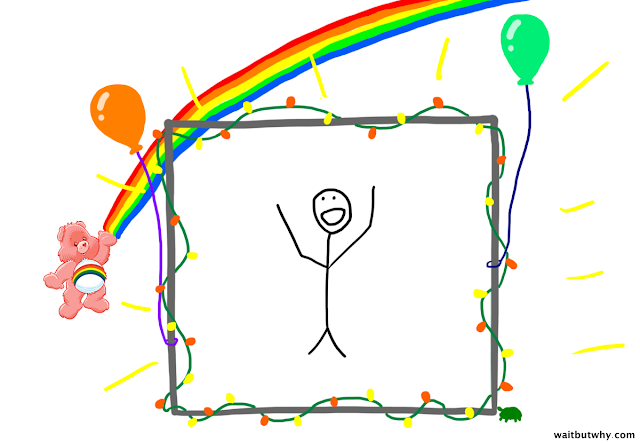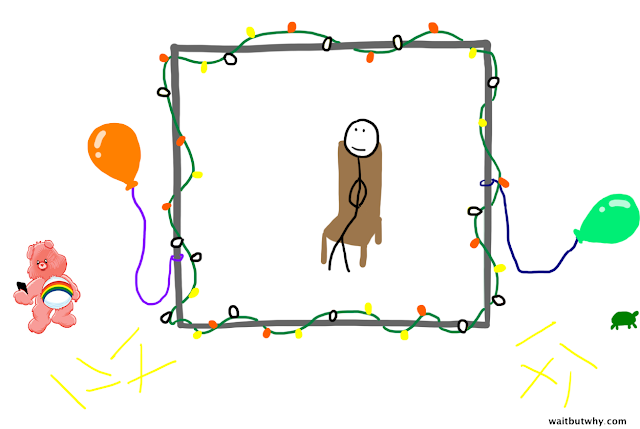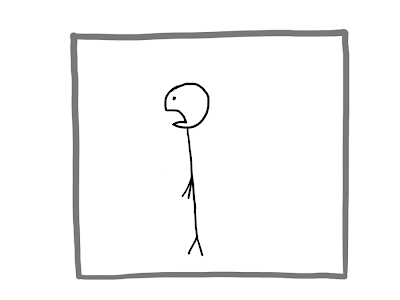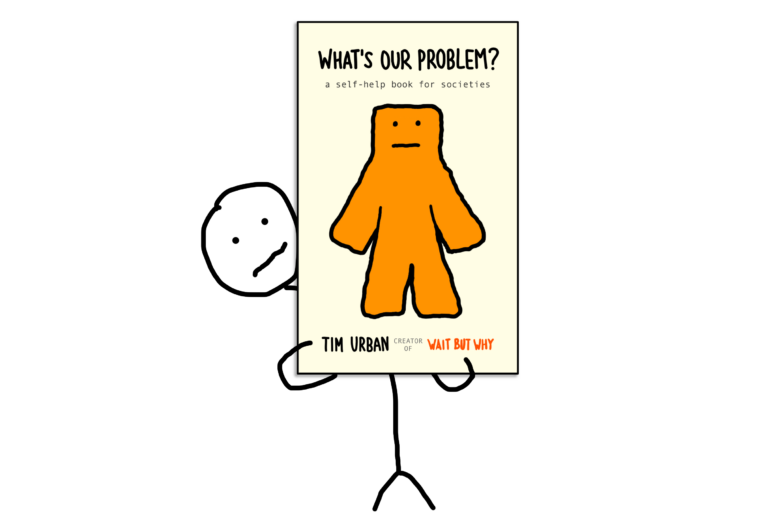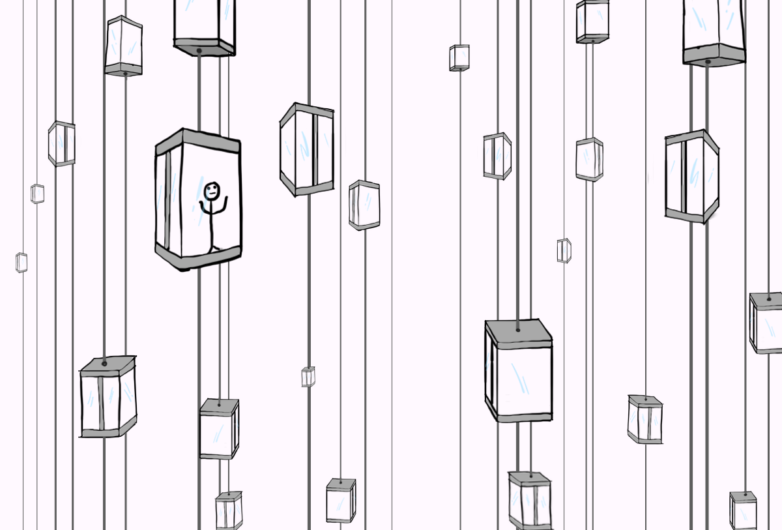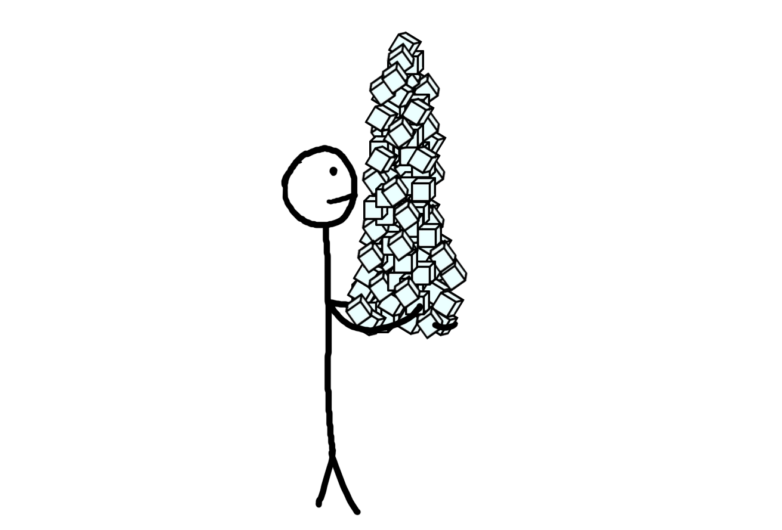This is Jack:
Jack and Today are dating.
The relationship is going all right and Jack’s reasonably happy, but for a while now, Jack has known that the Today he’s with is not the one. Sure, he and Today have fun sometimes, but all too often, Jack feels like he’s dating a mundane Wednesday, and that’s certainly not the kind of Today he plans to be with in the long run.
That time will come, but Jack has another plan in the meantime—he’s getting a raise next week, and he’s going to break up with his current Today as soon as that happens and start dating someone new—Today Once I Get My Raise. Of course, she’s not the kind of Today worthy of marriage for a guy like Jack, but she’s much more fun and exciting than his current very ordinary Today.
The morning after he gets his raise, Jack wakes up with an extra bounce in his step. He’s a new man with a new Today, and he likes her already:
Two weeks later, Jack goes back to that fancy restaurant, but something feels a little different. The food is still great, but it’s just not quite as exciting this time.
And a month after that, when he heads out golfing for the fourth time with the new clubs, his mood isn’t affected at all by them—it just kind of feels like a normal golf day again.
He can’t believe it. What the hell is she doing here?
He considers placing a restraining order on this ex who won’t leave him alone, but ultimately decides to let it go—after all, it’s not like he was gonna marry Today Once My Business Takes Off And I Find A Girlfriend anyway. The real Today he’s holding out for is Today Once I Sell My Business and Marry My Girlfriend, and that’s the Today he’ll truly be happy with.
Gilbert says that “from field studies to laboratory studies, we see that winning or losing an election, gaining or losing a romantic partner, getting or not getting a promotion, passing or not passing a college test, and on and on, have far less impact, less intensity, and much less duration than people expect them to have.” It even applies to terrible events in our lives. According to Gilbert, “a recent study showing how major life traumas affect people suggests that if it happened over three months ago, with only a few exceptions, it has no impact whatsoever on your happiness.” Jack is clearly a victim of The Impact Bias.
Jack’s difficulties also relate to The Pixel Theory, a phrase coined by Tim Urban during his famous “alone in his apartment in front of the mirror” TED Talk.
Jack sees his life as a rich picture depicting an epic story and assumes that the key to his happiness lies in the broad components of the image.
But this is a mistake, because Jack doesn’t live in the picture’s broad strokes, he lives at all times in a single pixel of the image—a single Today.
As far as what will actually make Jack happier as he lives in his mundane Wednesday, there are a number of scientifically proven things, including spending time with people you like, sleeping well and exercising, doing things you’re good at, and doing kind things for others.
But perhaps the first thing Jack needs to do is learn to feel more gratitude, another scientifically proven route to happiness and the area in which he falls the most woefully short. Jack spends so much of his time looking up at the great things that will come his way and planning his future happiness and not nearly enough time looking down and thinking about how badly he used to want so many of the things he currently has.
___________
_______
If you like Wait But Why, sign up for our unannoying-I-promise email list and we’ll send you new posts when they come out.
To support Wait But Why, visit our Patreon page.
______
If you liked this, check out:
Taming the Mammoth: Why You Should Stop Caring What Other People Think


